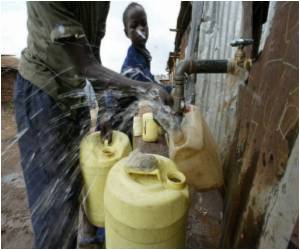
Research published today in the journal PLOS ONE shows children under 10 who drink from contaminated supplies are suffering around five bouts of sickness or diarrhoea a year.
This figure is similar to the rates of infection among children in the developing world.
Around 1 per cent of the UK population are served by private supplies – such as wells and boreholes. In Europe the number is as much as one in 10. And many more drink from such water supplies as visitors and while on holiday.
But half of all private water supplies in the UK do not meet water safety regulations.And while water-borne bacteria does not appear to affect adults and older children, the under 10s are particularly at risk of picking up stomach infections.
Researchers investigated whether people drinking from contaminated supplies are more at risk than those drinking from supplies that comply with safety standards - and particularly whether children are more susceptible to disease.
Advertisement
They also collected samples of drinking water from each household which were tested for the faecal bacteria E. coli, Coliform and Enterococci.
Advertisement
"This is a serious concern. As well as children being more at risk, they also suffer the most from an episode of diarrhoea – with greater rates of hospitalization and higher mortality rates.
"It is very important that households reliant on private water supplies, where children under 10 live or visit, are identified and frequently tested for pollution. Our recommendation to parents is to either ensure adequate well-maintained treatment such as chlorination or filtration, or provide alternate sources such as drinking bottled water."
Source-Eurekalert











